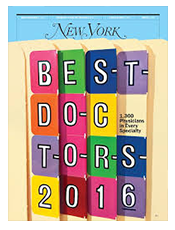Smell & Taste Disorders – Causes & Treatments

Taste and smell disorders can be very bothersome and can have a negative effect on your health and quality of life. Most people who have a taste disorder also have a problem with smell and vice versa. When you chew food, aromas are released that activate your sense of smell via the channel that connects the roof of the throat to the nose. If this channel is blocked, due to stuffy nose or injury, odors cannot stimulate sensory cells in the nose. When your sense of smell is compromised, you also lose some of your taste. Without smell, foods tend to taste bland. Some people are born with smell and taste disorders, but most develop them after an injury or illness.
Causes of Taste Disorders
- Upper respiratory and middle ear infections
- Radiation therapy for head and neck cancers
- Exposure to certain chemicals (insecticides) and medications (antibiotics and antihistamines)
- Head injury
- Surgeries of the ear, nose, and throat
- Wisdom teeth removal
- Poor oral hygiene and dental problems
Types of Taste Disorders
The most common taste disorder is phantom taste perception, which is characterized by a lingering, unpleasant taste in the mouth. Hypogeusia results in a reduced ability to taste sweet, sour, bitter, salty, and umami flavors. People with Ageusia cannot detect any tastes, but true taste loss is rare. Dysgeusia is a condition that causes a foul, salty, rancid, or metallic taste that persists in the mouth. This can be accompanied by burning mouth syndrome, a condition in which a person experiences a painful burning sensation in the mouth. Although it can affect anyone, older women are more likely to experience burning mouth syndrome.
Causes of Smell Disorders
- Aging
- Sinus and upper respiratory infections
- Smoking
- Growths in the nasal cavity
- Head injury
- Hormonal disturbances
- Dental problems
- Exposure to chemicals (insecticides and solvents)
- Certain medications (antibiotics and antihistamines)
- Radiation for head and neck cancers
- Nervous system conditions (Parkinson’s disease, Alzheimer’s disease)
Types of Smell Disorders
- Hyposmia – the reduced ability to detect odors
- Anosmia – the complete inability to detect odors
- Parosmia – a change in the normal perception of odors
- Phantosmia – the sensation of an odor that isn’t there
Diagnosis of Taste & Smell Disorders
An otolaryngologist (ENT) can determine the extent of your disorder by measuring the lowest concentration of a taste or smell that you can detect or recognize. For taste disorders, this may be administered in a “sip, spit, and rinse” test, or chemicals may be applied directly to specific areas of the tongue. For smell disorders, patients are tested to determine the smallest amount of odor that they can detect. An accurate assessment for both includes a physical examination of the ears, nose, and throat; a dental examination; review of a health history; and a taste test supervised by a professional.
Are Taste & Smell Disorders Serious?
A loss of taste can be a risk factor for heart disease, diabetes, stroke, and other illnesses that require sticking to a specific diet. A loss of smell can be an early sign of Parkinson’s disease, Alzheimer’s disease, or multiple sclerosis; it can also be related to obesity, diabetes, hypertension, and malnutrition. In severe cases, loss of smell can lead to depression.
When their smell or taste is impaired, people change their eating habits. Some may eat too little and lose weight while others eat too much and gain weight. As food becomes less enjoyable, people tend to overuse salt and sugar to improve the taste. This can be a problem if they are at risk for high blood pressure or kidney disease.
Treatment
A proper diagnosis by an ENT is the key to treating taste and smell disorders. If a certain medication or chemical is the cause, eliminating your exposure can eliminate the problem. If a respiratory infection is a culprit, your sense will return when the infection resolves. If your disorder cannot be successfully treated, counseling may help you adjust to your problem.











